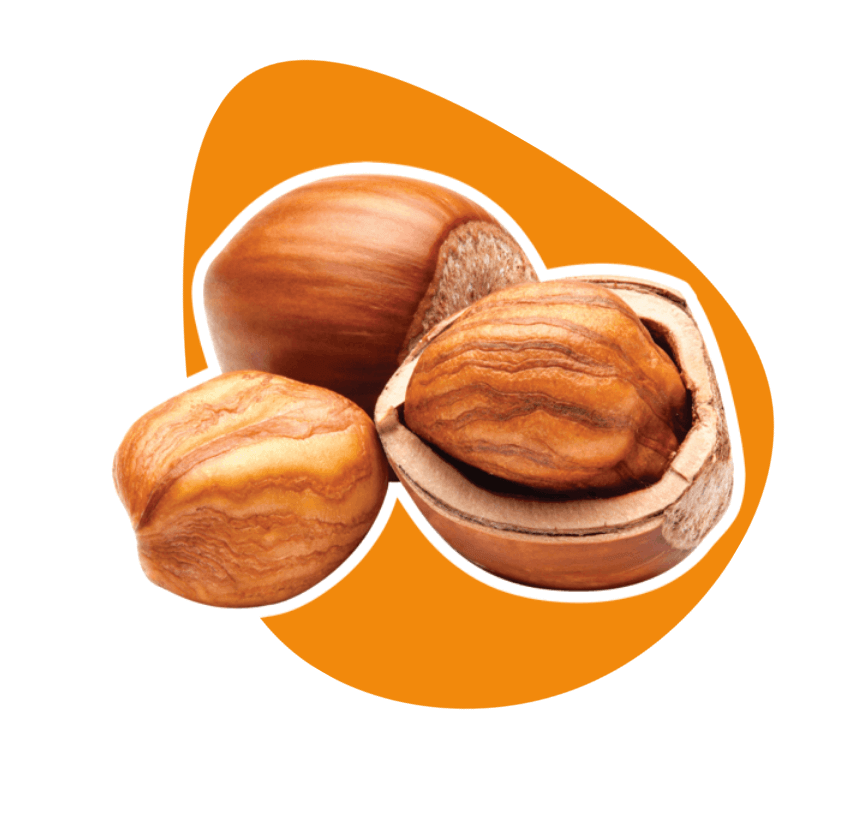Nuts and seeds were an important energy and nutrient source throughout history. Almonds and pistachio nuts are mentioned as far back as biblical times, and references to other nuts and seeds abound in the literature.
Historians hypothesize that ancient societies (about 10,000 years ago) centered on the harvesting of nuts, which may then have fostered agriculture. Predictable growth (nuts grow on trees), long storage life (especially during winter), and generous nutrient profiles are all advantages of nuts to ancient cultures. Interestingly, ancient Romans gave sugared almonds as gifts at weddings, and this custom is still used today. Peanuts, which date back to about 800 B.C., much later joined the Apollo astronauts to the moon in 1969.
Overall, nuts have very similar macronutrient (protein, carbohydrate and fat) profiles, but different types of nuts may have slightly different micronutrient (vitamin and mineral) content.
Vitamins and minerals are considered essential nutrients—because acting in concert, they perform hundreds of roles in the body. They help shore up bones, heal wounds, and bolster your immune system. They also convert food into energy, and repair cellular damage.


Some research suggests that eating nuts can increase the amount of energy we burn.
Nut consumption promotes fullness and suppresses hunger or the desire to eat. As a result, food intake is reduced. This effect is due to the protein, fat and fiber content of nuts
Regular consumption of nuts, seeds and legumes is recommended for vegetarians, vegans or people who avoid animal foods. They are a good substitute for meats, fish and eggs as they contain protein, fat, iron, zinc and niacin. More than 30 grams of nuts and seeds a day may be needed to ensure adequate protein.
Fats in nuts are not fully digested and absorbed by the body. Research shows that only 68 to 94 per cent of fats from nuts are absorbed.
Another study shows that the energy we burn following a nut-enriched meal comes from fat sources, meaning that we burn more fat and store less fat in the body.
The vitamin E found in nuts is needed by the immune system to fight off invading bacteria, so nuts are great for helping to prevent colds.
Lower fat absorption, reduced food intake, and greater energy expenditure collectively contribute to the weight regulating effects of nuts. The effect of seeds on body weight has not been researched extensively but is likely to be similar to that of nuts as they are also high in protein, healthy fat and fiber.
Like nuts, most seeds are rich in protein, healthy fats, fibre, minerals such as magnesium, potassium (K), calcium, plant iron (Fe) and zinc, and contain vitamins B1, B2, B3 and vitamin E. Oily seeds also contain antioxidants that stop the fats from going rancid too quickly.
A combination of calcium, vitamin D, vitamin K, magnesium, and phosphorus protects your bones against fractures.
Vitamin E also acts as an antioxidant (a compound that helps protect the body against damage from unstable molecules). Within your body, fat tissues and the liver act as the main holding pens for these vitamins and release them as needed.
Several B vitamins are key components of certain coenzymes (molecules that aid enzymes) that help release energy from food.
One of many roles played by vitamin C is to help make collagen, which knits together wounds, supports blood vessel walls, and forms a base for teeth and bones.
Thiamin (B1), riboflavin (B2), niacin (B3), pantothenic acid (B5), and biotin (B7) engage in energy production.
Without vitamin E, your body would have difficulty absorbing and storing vitamin A.
Vitamin A also helps keep cells healthy and protects your vision.
Vitamins B6, B12, and folic acid (B9) metabolize amino acids (the building blocks of proteins) and help cells multiply.